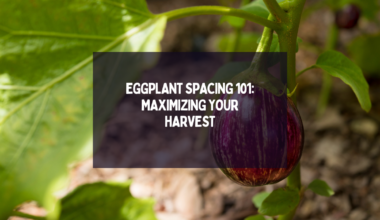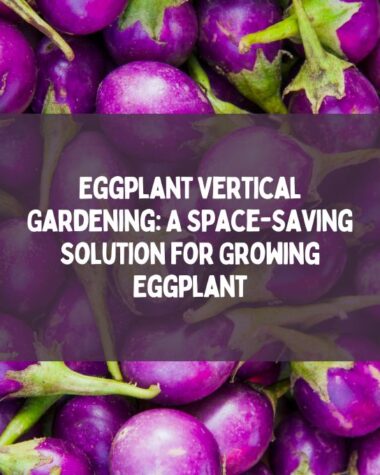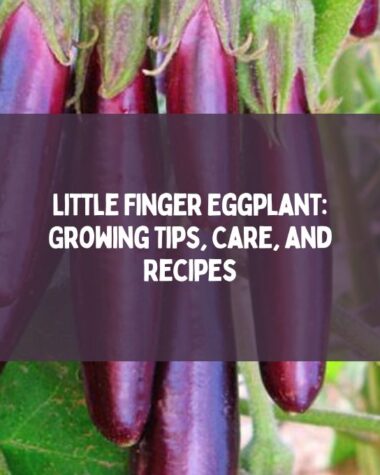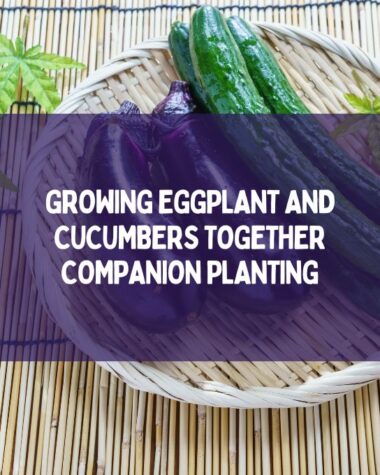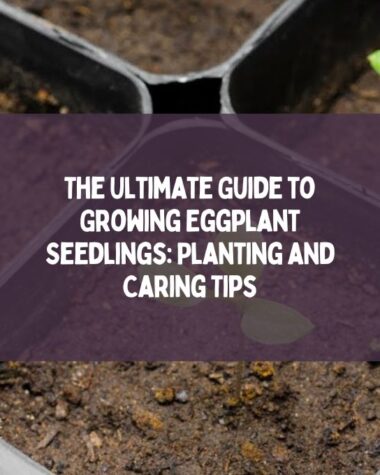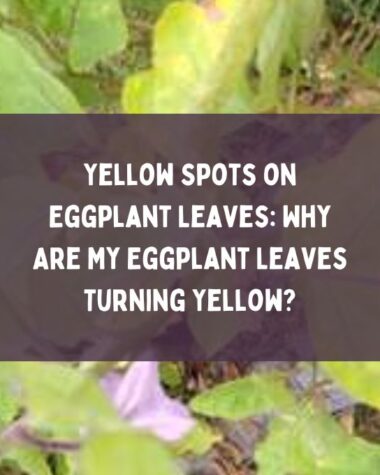Eggplant companion plant gardening is a widespread practice among gardeners, which involves planting eggplants alongside other plants that can enhance their growth, health, and yield.
Companion planting is an ancient agricultural technique used for centuries to improve crop yields and minimize pests and diseases in the garden.
Companion planting involves pairing different plant species in the same garden bed, where they can interact and benefit from each other in various ways. Some plants can repel pests, while others can attract beneficial insects or fix nitrogen in the soil, improving soil fertility and supporting plant growth.
In this article, I will explain eggplant companion gardening, including the benefits of companion planting, the best companion plants for eggplants, and some tips and tricks to help you get the most out of your eggplant garden.
Whether you’re a beginner or an experienced gardener, this guide will provide all the information you need to grow healthy, productive eggplants.
Understanding Eggplants and Companion Gardening
Eggplants, also known as aubergines, are popular in many cuisines worldwide. They belong to the nightshade family, with tomatoes, peppers, and potatoes. Eggplants are typically long and oblong and come in various colors, including purple, white, and green.
One unique feature of eggplants is that they require warm temperatures to grow and thrive, making them ideal for warmer climates. They also require well-draining soil and regular watering to prevent their fruits from becoming bitter.
The Benefits Of Companion Gardening For Eggplants
Companion gardening can provide numerous benefits for eggplants. For example, planting certain companion plants alongside eggplants can help to deter pests and diseases, improve soil fertility, and increase crop yield.
Companion gardening can also help to create a more diverse and healthy garden ecosystem, promoting biodiversity and reducing the need for chemical pesticides and fertilizers.
Related Reading
- 17 Plants You Can Grow With Carrots As Companions
- Cucumber Companion Planting: What To Grow With Cucumbers And What To Not Grow
- What do you understand by companion planting? Some best tomato companions plants
What To Consider When Choosing Companion Plants For Eggplants?
When choosing companion plants for eggplants, it is essential to consider factors such as the plant’s nutrient requirements, growth habits, and compatibility with eggplants. Some companion plants may help to repel pests or attract beneficial insects, while others can provide shade or support to eggplants.
Tips For Successful Eggplant Companion Gardening
To successfully grow eggplants with companion plants, planning and designing your garden bed carefully is crucial. Consider the specific needs of each plant and the amount of space they require. Ensure that you plant them at the right time and in the correct location.
Regular watering, pruning, and pest management are essential to ensure healthy and productive plants.
Best Companion Plants for Eggplants
Several ideal companion plants can be planted alongside eggplants to enhance their growth and health. Below are some of the best companion plants for eggplants, along with their benefits and potential drawbacks.
Basil
Basil is an excellent companion plant for eggplants as it repels pests and attracts beneficial insects such as bees and butterflies. It also enhances the flavor of eggplants and improves their growth.
To plant basil with eggplants, sow seeds around the base of the eggplant or transplant seedlings nearby. Avoid planting too close together, as basil can compete for nutrients and water.
Marigolds
Marigolds are another excellent companion plant for eggplants, as they help to repel pests and improve soil health. They contain alpha-terthienyl, which is toxic to nematodes and other soil-borne pests.
To plant marigolds with eggplants, sow seeds or transplant seedlings around the base of the eggplant or in between rows. However, avoid planting too close together, as marigolds can also compete for nutrients and water.
Beans
Beans are excellent companion plants for eggplants as they can fix nitrogen in the soil, which improves soil fertility and supports eggplant growth. They also provide shade and support for eggplants, which can be beneficial in hot climates.
To plant beans with eggplants, sow seeds or transplant seedlings nearby, ensuring that the bean plants do not shade the eggplants too much.
Peppers
Peppers are another excellent eggplant companion plant as they repel pests and attract beneficial insects. They also have similar soil requirements to eggplants, making them good planting companions.
Plant peppers with eggplants, sow seeds, or transplant seedlings nearby, ensuring they have enough space to grow without competing for nutrients or water.
Nasturtiums
Nasturtiums are a beautiful and beneficial companion plant for eggplants. They attract pollinators and repel pests such as aphids, whiteflies, and cucumber beetles. They also have a shallow root system that can improve soil structure and prevent erosion.
Plant nasturtiums with eggplants, sow seeds, or transplant seedlings nearby, ensuring they have enough space to grow without competing for nutrients or water.
While these companion plants offer several benefits, they also have potential drawbacks. For example, planting too closely together can lead to competition for nutrients and water, and some plants may attract pests or diseases that can harm eggplants.
To mitigate these risks, plant each companion plant in the right location and distance from the eggplants. Regular watering, pruning, and pest management are essential to ensure healthy and productive plants.
Also Read
- The Ultimate Guide to Growing Eggplant Seedlings: Planting and Caring Tips
- Complete Aubergine Planting Guide: Tips and Strategies for Successful Cultivation
- 18 Common Aubergine Growing Problems and Their Solutions
Worst Companion Plants for Eggplants
While companion plants can benefit eggplants, some plants should be avoided. Here are some of the worst companion plants for eggplants:
Nightshade plants
Nightshade plants such as tomatoes, potatoes, and peppers are not ideal companion plants for eggplants as they belong to the same family (Solanaceae). These plants can attract similar pests and diseases and compete for nutrients and water. Avoid planting eggplants near these plants, and rotate crops to prevent the build-up of pests and diseases in the soil.
Brassicas
Brassicas such as cabbage, broccoli, and cauliflower are not ideal companion plants for eggplants as they can attract similar pests such as flea beetles and aphids. They also have different soil requirements, with brassicas preferring alkaline soil and eggplants preferring acidic soil. Avoid planting eggplants near brassicas, and rotate crops to prevent soil-borne pests and diseases.
Fennel
Fennel is another plant that should be avoided as a companion for eggplants, as it can inhibit their growth and development. Fennel produces a chemical called anethole, which can stunt the growth of nearby plants, including eggplants. Avoid planting fennel near eggplants, and plant them in different garden areas.
Weeds
Weeds can also be detrimental to eggplants, as they can compete for nutrients and water and attract pests and diseases. Regular weeding is essential to prevent weeds from taking over and affecting the growth of eggplants.
To mitigate the potential drawbacks of these companion plants, it is essential to plant them in different areas of the garden and to rotate crops to prevent the build-up of pests and diseases in the soil. Proper spacing, regular watering, and pest management are essential to ensure healthy and productive plants.
Conclusion
Eggplant companion gardening boosts plant health and output. Companion plants may boost soil fertility, repel pests, and promote garden health. Yet, choosing the incorrect companion plants may increase pest and disease burden and nutrient competition.
Consider soil, sunshine, and plant demands while creating your eggplant companion garden. Basil and marigold flowers are good eggplant companion plants, but avoid nightshades and brassicas.
Careful planning and attention may provide a plentiful crop and a beautiful vegetable garden.

